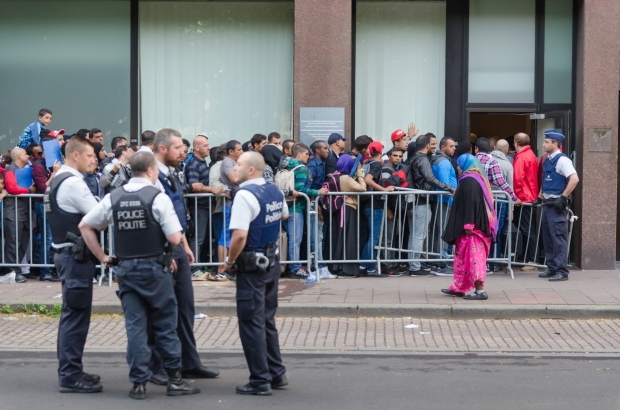- Daily & Weekly newsletters
- Buy & download The Bulletin
- Comment on our articles
Amnesty International condemns Belgium’s failure to provide enough aid to asylum seekers
Human rights organisation Amnesty International has condemned Belgium’s shortcomings when it comes to providing asylum to refugees and humane conditions in the country’s prisons.
In its annual report – which the organisation titled "A turning point in the history of international law" – Amnesty International called Belgian prison conditions "disastrous" and pointed to thousands of court convictions against Belgium for failing to meet its EU obligation to give every prospective asylum seeker food, shelter and access to sanitary facilities.
“The reception crisis that our authorities themselves have created has now been going on for two-and-a-half years, forcing thousands of people to survive on the streets for months on end, a situation that seriously undermines their dignity and their human rights,” said Carine Thibaut, director of the French-speaking Belgian section of Amnesty International.
“Cruelly ignoring the thousands of convictions against Belgium, our government continues to refuse to implement solutions that would enable us to remedy this tragic situation, such as activating the distribution plan, even though it is enshrined in law.”
Amnesty International said in its report that in terms of prison conditions, it is particularly concerned about "the state of overcrowding and dilapidation", because of the effects that has on the human rights of detainees, including inadequate access to basic services – particularly medical care and sanitation.
“Both the reception crisis and the deplorable situation in prisons are mainly the fault of our authorities and the result of political choices,” Thibaut said.
“It's all the more appalling that these choices are made at the expense of people who are of no electoral interest, but who have exactly the same rights as any other human being. Amnesty International, other organisations and international institutions have been sounding the alarm for years.”
The report also noted that the right to protest in Belgium has come under pressure, particularly as a result of repressive legislative developments.
“Take, for example, the bill tabled by former justice minister Vincent Van Quickenborne, which aimed to introduce an additional penalty of a judicial ban on demonstrations for acts committed at protest rallies,” said Thibaut.
The legislation was eventually abandoned, with Thibaut crediting “the mobilisation of a broad coalition of civil society organisations”.
The annual report, which focuses on the state of human rights worldwide with country-specific highlights, had much to say on the ongoing crisis in Gaza.
“The conflict between Israel and Hamas has provoked hundreds of demonstrations around the world, including in Belgium,” the report noted.
While issuing sharp criticism on prisons, the reception of refugees, the handling of aid worker Olivier Vandecasteele’s imprisonment in Iran and Wallonia’s decision to grant authorisations for arms transfers to countries where human rights could be violated (such as Brazil, Nigeria and Indonesia), it did cite some advances in Belgium.
Those include the opening of two new care centres for victims of sexual violence, the introduction of a reference framework on professional profiling, and the withdrawal of the draft law banning demonstrations.
















